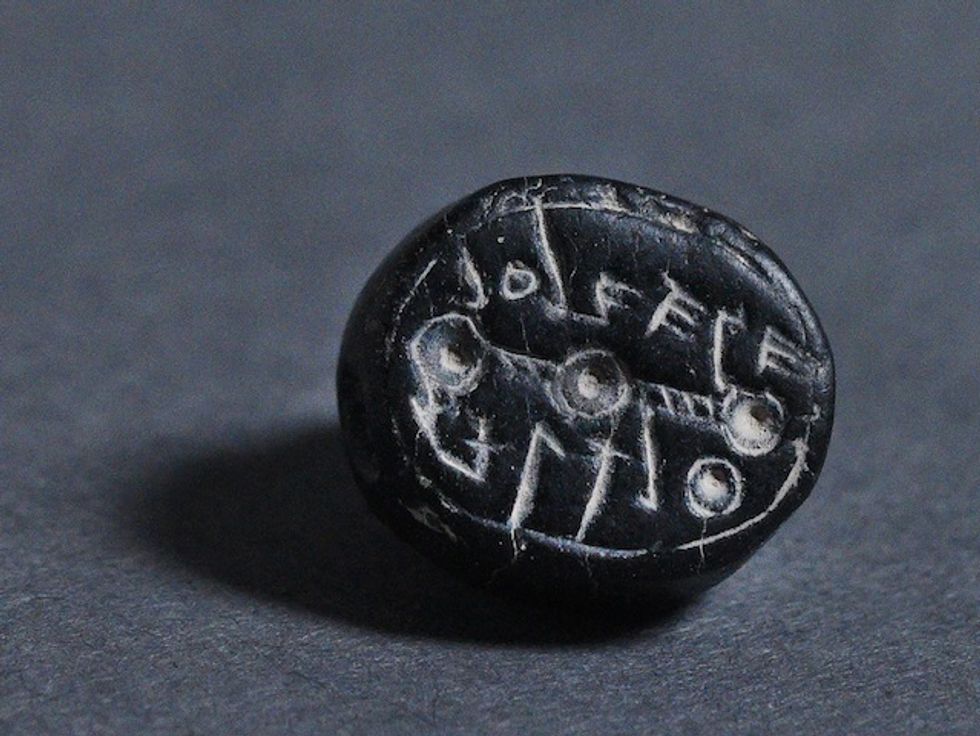
A seal bearing the inscription: “To Elihana bat Gael.” (Photo: Israel Antiquities Authority/Clara Amit)\n

The Israel Antiquities Authority announced Monday that archaeologists have found two seals in Jerusalem inscribed with Hebrew names and dating to the time of the First Temple, which was described in the Bible as constructed by King Solomon.
One of the 2,500-year-old seals, made of semi-precious stone, bears the name “Elihana bat Gael,” a Jewish woman, which historians consider to be a very rare find. The inscription in ancient Hebrew letters denotes the woman’s name Elihana, then “bat” (daughter of) and her father’s name Gael.
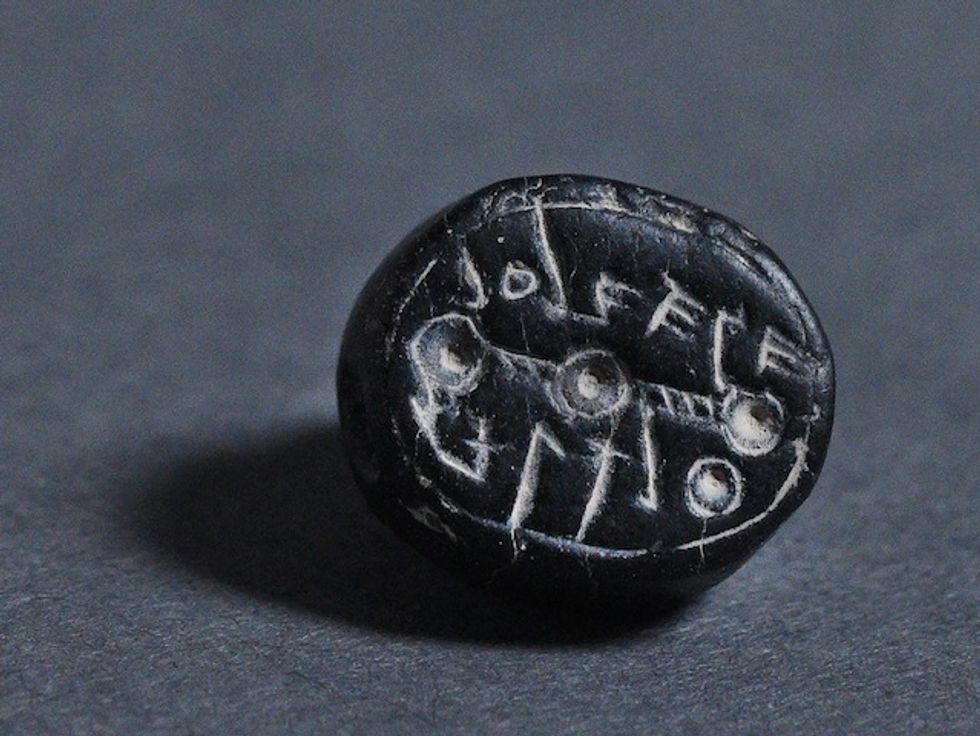
“Finding seals that bear names from the time of the First Temple is hardly a commonplace occurrence, and finding a seal that belonged to a woman is an even rarer phenomenon,” excavation directors Doron Ben-Ami, Yana Tchekhanovets and Salome Cohen said in a statement Monday announcing their find.
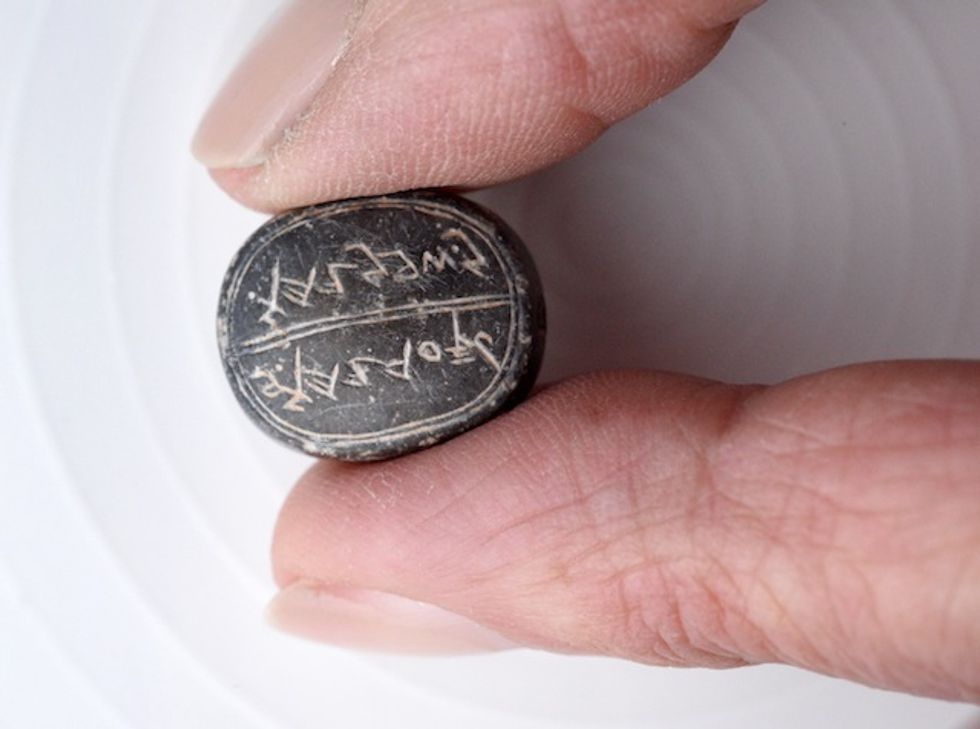
A second seal found during the excavation at the City of David had the Hebrew inscription “to Sa‘aryahu ben Shabenyahu” written in mirror-writing.
The researchers pointed out that the name Sa‘aryahu means “the Lord, which was revealed in a storm,” a reference to the book of Job 38.
That name was also once found on a sherd during an excavation in Arad in Israel’s southern Negev desert.
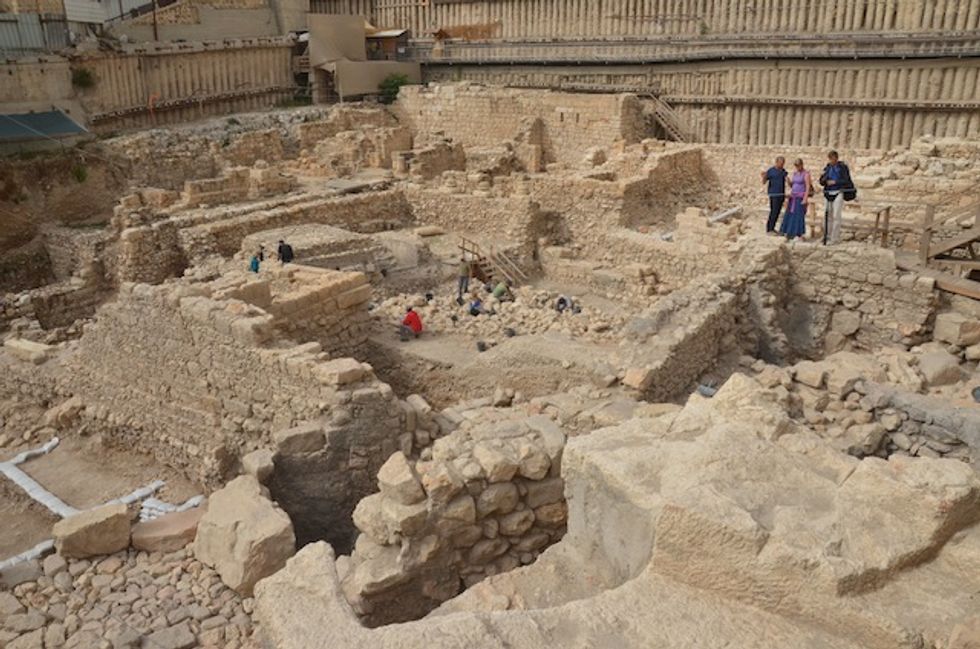
The Antiquities Authority said that archaeologists have been excavating the site in the Jerusalem Walls National Park for nine years, with the help of the Israel’s Nature and Parks Authority and the City of David Foundation.
After almost a decade, they reached the First Temple period strata of ancient Jerusalem “where a surprise awaited them,” the Antiquities Authority said. The surprise was the two seals found inside a building constructed of ashlars, that is, finely-cut masonry. The archaeologists said the building may have been an administrative center during the First Temple period.
“The owner of the seal was exceptional compared to other women of the First Temple period: she had legal status which allowed her to conduct business and possess property,” the excavation directors said.
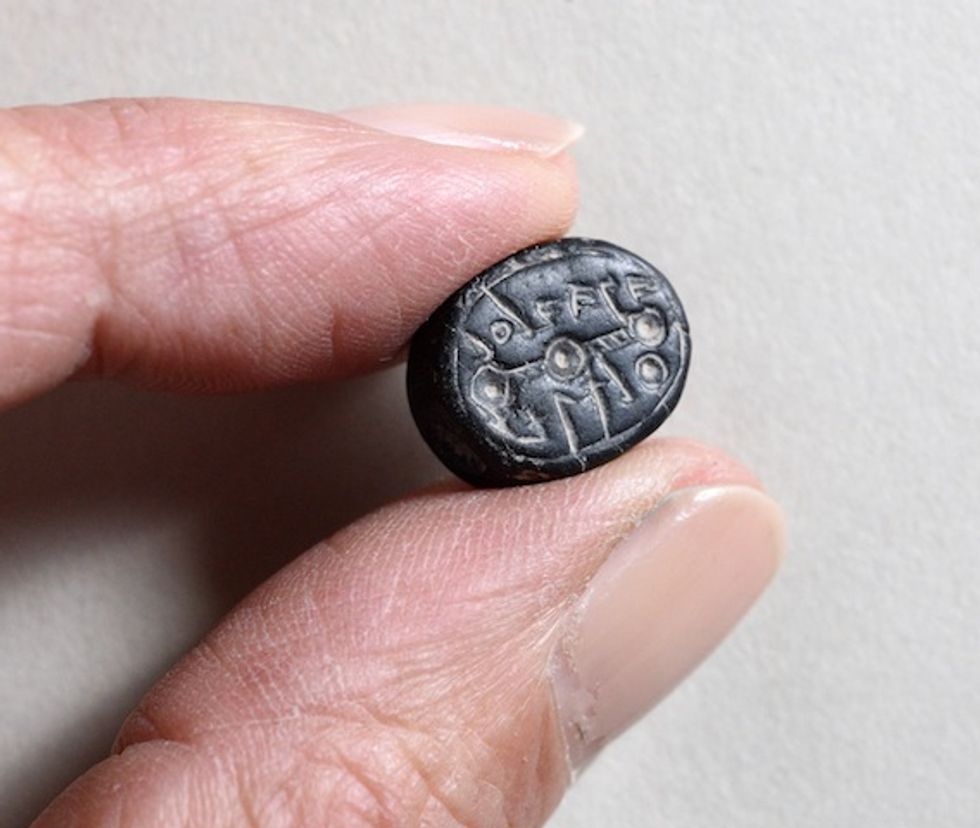
The archaeologists explained that personal seals used to sign documents were often found inside a ring worn by the owner. The inscription designated the owner’s name, genealogy and social status.
Hagai Misgav, from the Hebrew University of Jerusalem’s Institute of Archaeology, explained that very few seals that have been found belonged to women, most likely due to the second-class economic and social status they held.
“Indeed, the name Elihana does not appear in the Bible, and there is no other information regarding the identity of the woman, but the fact that she possessed a seal demonstrates her high social status,” Misgav said.
Notably, other women’s seals that have been discovered included the name of the father, not the husband.
“Here, as in other cases, this might indicate the relatively elevated status of Elihana, which depended on her original family, and not on her husband’s family. It seems that Elihana maintained her right to property and financial independence even after her marriage and therefore her father’s name was retained; however, we do not have sufficient information about the law in Judah during this period,” Misgav said.